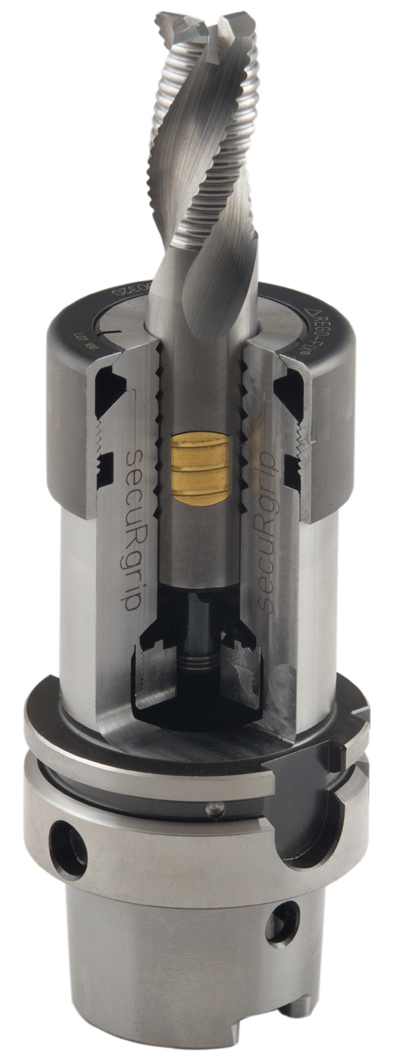secuRgrip Anti-Pullout Toolholding System
secuRgrip Anti-Pullout Toolholding System
REGO-FIX Tool Corp. offers new versions of its secuRgrip anti-pullout toolholding system that can be used in any ER collet system, as well as applied in REGO-FIX milling chucks.

REGO-FIX Tool Corp. offers new versions of its secuRgrip anti-pullout toolholding system that can be used in any ER collet system, as well as applied in REGO-FIX milling chucks.
The secuRgrip system locks the collet and cutter to the toolholder body via a patented method that employs a small, profiled locking key insert that fits into a tool's standard Weldon endmill flat.
After the insert is placed in the tool flat, screwing the tool into a collet or a milling chuck that has a matching internal diameter profile securely locks the two together. The system provides a solid connection for high-productivity machining operations.
The secuRgrip system works with standard carbide or HSS endmills 0.5" (12.7mm) to 0.79" (20mm) in diameter, and provides TIR of 0.0002" or better. A backscrew enables presetting of tool length. The hardened steel locking inserts are size-specific per diameter.
The system is now available for use with ER 32 or ER 40 holders in all tapers, including CAT, BT, TC, HSK, CAPTO, as well as REGO-FIX 0.75", 1" and 1.25" milling chucks in CAT, BT and HSK tapers.





